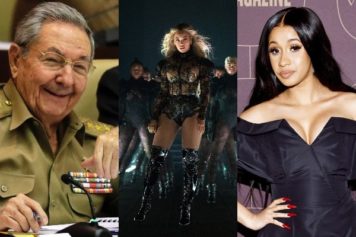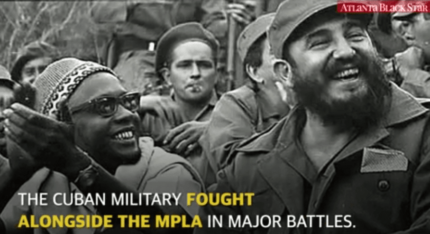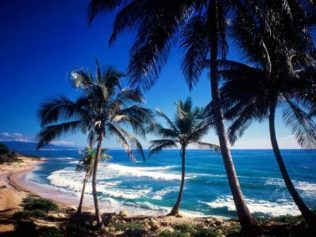The always intriguing Venezuelan President Hugo Chavez returned to Venezuela early this morning after spending more than a week in Cuba receiving additional treatment following his bout with cancer over the past 18 months.
Chavez sent a letter to Venezuelan leaders before he left saying he would be receiving “hyperbaric oxygenation” therapy, which can ease ailments caused by radiation treatment.
When he arrived back in Venezuela in the early morning, Chavez was in a joking mood.
“What time is it? 3am? This is the perfect hour to go party. Where is the party, then?” Chávez said.
Alongside Chavez were his vice-president, Nicolas Maduro, and his two daughters as he descended the plane onto the tarmac. Chávez, who has been in power since 1998, said he was happy to be back and took the opportunity to make a political statement, saying he was looking forward to another victory in the upcoming regional elections, which he has said will secure him a “perfect victory.”
“Today is 7 December it’s been two months since October’s victory, but yesterday it was 14 years since the 6 December [presidential] victory. We have gone from victory to victory,” he said.
Before Chavez left, a special session assembled in Maracay approved his request to leave the country, and National Assembly President Diosdad Cabello read the request to a television audience. Chavez had promised he would return in time to be sworn in for his fourth term as president on January 10.
Hyperbaric oxygenation treatment involves the patient breathing pure oxygen while sitting in a sealed, pressurized chamber. Though it has been proven successful in treating a variety of medical conditions including carbon monoxide poisoning and radiation tissue damage, the treatment has not been proven to be effective against cancer, according to the American Cancer Society.
Chavez first sought treatment in Cuba in June 2011, and relapsed in February, though he claimed to have recovered. Since being re-elected in October, Chavez has made few public appearances, leading to speculation on his health. He was last seen on November 15 during a televised meeting. The possibility that Chavez may not be able to complete his fourth term is causing uncertainty in international dealings.
The bolivar, the country’s currency, has suffered under a drought of U.S. dollar bond sales in the last year, leading to a 42 percent drop in the bolivar’s value on the black market since October of 2011. Chavez is under heavy pressure to issue U.S. bonds in order to buoy the value of the bolivar and protect Venezuela from higher debt costs.


